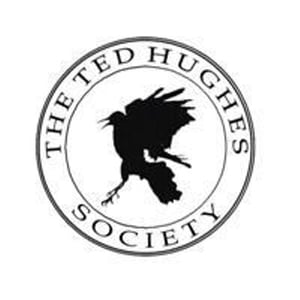Dramatic works by Ted Hughes
Phèdre (London: Faber and Faber, 1998)
Marija Bergam considers Hughes's version of Racine's play
Phèdre is a product of the busy translational activity – mainly aimed at the stage – which marked the last phase of Hughes’s production. At the centre of its tight plot is the incestual lust of the fatally possessed queen and stepmother, whose unrequited passion leads to the unjust accusation and gory death of Hippolytus, her husband's son. The history of the play is a fascinating case of textual refraction, touching upon questions of translation and reception. Hughes's Phèdre is a rendering of Jean Racine’s masterpiece (1677) which is itself a version of Euripides’s Hippolytus (428 BC) executed under the strong influence of Seneca's Phaedra.
Hughes probably began his work on the translation sometime in the second half of August 1997, responding to a request by Jonathan Kent, who went on to direct the first production by the Almeida Theatre Company in August 1998. The Greek myth had increasingly absorbed Hughes’s imagination in the past decade. Hence, the fatal(istic) mixture of Phèdre’s illicit, uncontrollable passion, the equally uncontrollable rage and vengefulness of her boorish and misguided spouse (Theseus) and Hippolytus’s saintly but frigid nature must have appeared an optimal recipe for Hughes’s theatrical ambition. Entrapped by the indifferent, manipulating gods, each character is brought to face the monstrous in human nature, which culminates in the embodied apparition of the homicidal beast sent by Neptune, Theseus’s sire. Hippolytus’s courage stands him in poor stead against the sea-monster, and Hughes knew full well that Hippolytus’s disdain of the Goddess of Love was the root of Euripides’s tragedy. Theseus, Hippolytus’s father, is the prototype monster-slayer, the patriarchal hero and law-giver found elsewhere in Hughes’s poetic mythology. Blindly led on by Phèdre’s and Oenone’s machinations, Theseus is incapable of recognising his son’s innocence and thus leads his heir to a bloody end in a fit of misplaced rage. Phèdre is the dramatic pivot of the play structured on binary oppositions and parallelisms. Possessed by Aphrodite, she is at once divine and bestial, both a manipulated instrument in the hands of the gods and a manipulative jealous queen, who convinces even herself that the slander against her stepson is wholly due to her nurse. The triangle here presented may appear simplifying, but for the readers familiar with Hughes’s most ambitious critical oeuvre,Shakespeare and the Goddess of Complete Being (1992), it strikes a familiar note. It is the proof – if it were needed – that Phèdre is not just a coincidental, improbable foray into the foreign territory of French classical theatre but an integral part of Hughes’s larger production.
The translation reviews of Phèdre have been mostly positive, emphasising in particular its stage impact and performability. This is exactly what Hughes was hoping for when he decided to ‘English’ Racine’s text. In producing his version, his two guiding principles were simplicity and speed and, appropriately, the final result has been commended for its propulsive action and colloquial strength. Hughes did away with Racine’s characteristic idiom – including the Alexandrine couplet – while producing what is nonetheless a fairly literal version. Its most striking shifts and expressions are related to Hughes's even more ferocious and tormented Phèdre, to the dangerously obdurate Hippolytus and to his interaction with Theseus. Predictably, Hughes enhanced or introduced the semantic fields closer to his own interests – those referring to hunting, hunger and eating, poison, obsessions, the animal and, crucially, the labyrinthine and the monstrous.
Marija Bergam is a junior research fellow at the Faculty of Foreign Languages and Literatures, University of Bari. In 2009 she completed a doctorate in Translation Theory and Practice, during which time she researched the potential of the instruments provided by Translation Studies in the analysis of literary works. Her research interests include the representation of the natural environment in Derek Walcott’s verse and Lorna Goodison. In addition, she has been working on the poetics of landscape in Ted Hughes's poetry, while maintaining an interest in Translation Studies by investigating Hughes's roles as both as a translator of drama and as an active advocate of poetry translation in England.
